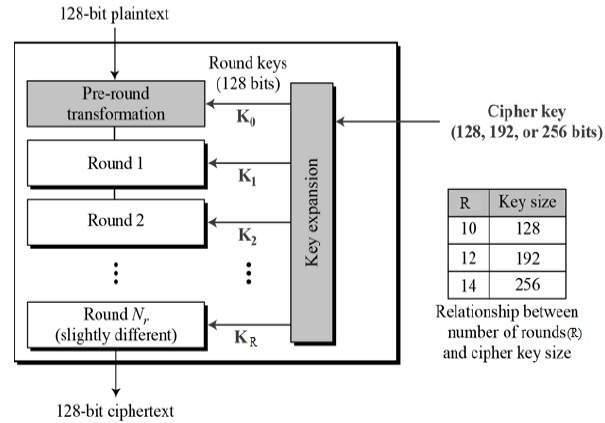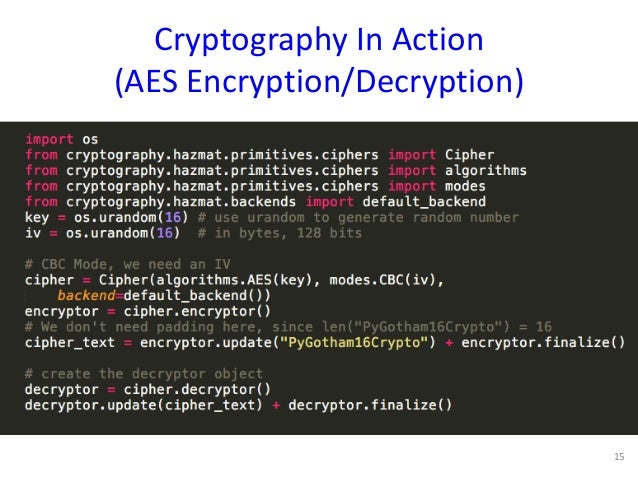- AES-256 is a solid symmetric cipher that is commonly used to encrypt data for oneself. In other words, the same person who is encrypting the data is typically decrypting it as well (think password manager). Before we dive in, if you’re here because you’re interested in learning cryptography in a more comprehensive and structured way, I.
- Encryption Key Generator. The all-in-one ultimate online toolbox that generates all kind of keys! 64-bit 128-bit 256-bit 512-bit 1024-bit 2048-bit 4096-bit.
AES (Advanced Encryption Standard) is a symmetric block cipher standardized by NIST. It has a fixed data block size of 16 bytes. Its keys can be 128, 192, or 256 bits long. AES is very fast and secure, and it is the de facto standard for symmetric encryption. The recipient can obtain the original message using the same key and the.

Warning
Please do not mistake this article for anything more than what it is: myfeeble attempt at learning how to use PyCrypto. If you need to useencryption in your project, do not rely on this code. It is bad. It willhaunt you. And some cute creature somewhere will surely die a painfuldeath. Don't let that happen.


If you want encryption in Python, you may be interested in these libraries:
I spent a little bit of time last night and this morning trying to find someexamples for AES encryption using Python and PyCrypto. To my surprise, I had quite adifficult time finding an example of how to do it! I posted a message onTwitter asking for any solid examples, but people mostly just responded withthings I had seen before--the libraries that do the encryption, not examplesfor how to use the libraries.
It wasn't long after that when I just decided to tackle the problem myself. Mysolution ended up being pretty simple (which is probably why there weren't anysolid examples for me to find). However, out of respect for those out therewho might still be looking for a solid example, here is my solution:
Edit: thanks to John and Kaso for their suggestions, though John's didn'tseem to work for me (?)
Generate Aes 256 Key Python Online

Edit 2015.12.14: thanks to Stephen for pointing out that the block size for AES is always 16, and the key size can be 16, 24, or 32. See FIPS-197 for more details.
Generate Aes 256 Key Python
If you plan to use this script, you'll need to have PyCrypto installed on yourcomputer. I have had a difficult time finding this for Windows in the past, soI will mirror the installer that I found overhere:http://jintoreedwine.wordpress.com/2008/07/20/python-25-and-encryption-pycrypto-under-windows/.I haven't tried it on Mac OS X yet, but it should be fairly simple to installit. Same goes for Linux.
The output of the script should always change with each execution thanks to therandom secret key. Here's some sample output:

If the comments in the script aren't explanatory enough, please comment and askfor clarification. I will offer any that I am capable of, and I invite othersto do the same.